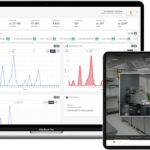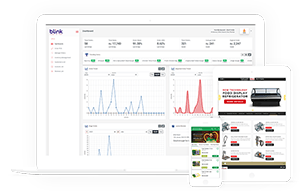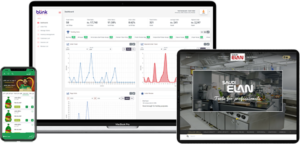Most businesses focus on survival during their first few years of operation. Prioritizing your company’s growth, on the other hand, is one of the most acceptable methods to ensure that your organization not only survives but also contributes to your economic well-being and a secure financial future. Seeing this growth in your business is fantastic news for any retail business owner.
However, it is easy to overlook that as your company’s prospects expand, so too do the challenges and opportunities you will face.
Managing a growing organization often necessitates the addition of multiple applications or software upgrades to fulfil the urgent demands of conducting your business activities. But a disparate or ad hoc approach to this can lead to future operational inefficiencies, time and resource drain, or mistakes being made.
So what’s the solution?
The best way forward is to incorporate an integrated Retail Management System intended to optimize all areas of your business activities and scale along with your growth.
In this article, you’ll find an introductory overview of what a Retail Management System is and how it can be utilized to amplify productivity and boost profitability for your retail company.
What Exactly is a Retail Management System?
A Retail Management System (RMS) is a platform that integrates an organization’s various digital applications and modules into a single framework to streamline each stage of its business operations.
To simplify it further, think of a Retail Management System as a central control console that helps run your business’s different areas. The various users of the system—owners, employees, vendors, and consumers—can be simultaneously involved across multiple levels to provide a more seamless and efficient way of conducting business.
The key focus of a Retail Management System is to increase sales and profitability while providing the best quality experience for its customers.
What are the Functions of an RMS?
There is no one-size-fits-all solution for an RMS.
Each system is devised keeping in mind an individual retail business’ unique needs and requirements.
Smaller retailers may need fewer modules, while a quickly expanding business with multiple branches may require a complex and comprehensive software system.
A standard Retail Management System typically includes the following features:
Accounting and Financial Management
It is imperative that a retail company can assess its current financial position and quickly compare it against previous performance and plans.
An RMS has integrated tools that allow this to happen. This module maintains the general ledger, records accounts payable and accounts receivable, and monitors operational expenses (utilities and rent). It also generates and saves essential financial records such as balance sheets, profit and loss statements, and tax returns.
Inventory Management
Large retailers engage in hundreds of thousands of sales orders every day.
A central framework is needed that can track stock movement in real-time, as even a minor discrepancy in the orders may significantly impact its sales.
Users of the RMS are facilitated at every stage of the inventory management lifecycle—from procurement, stock tracking, shipping, and delivery.
Inventory management tools compare sales trends to current inventory, allowing your business to make more educated decisions that raise profits and inventory turnover (calculating how often inventory is sold over time). This can reduce the chances of delays and out-of-stock items, hence improving the customer experience.
Human Resource Management
Employee accounts can be easily created to provide access to facets of the business directly related to workers’ activities and everyday processes.
The system also assists HR managers in personnel-related tasks by automating payroll and tax payments, organizing staff schedules, creating performance reports, and recording attendance and leaves.
Vendor Management
An RMS can assist external communication between your company and its suppliers. Setting up vendor accounts allows vendors to easily access information regarding inventory levels and stock requirements. This makes procurement and supply chain management more seamless.
Tools are also available to gather vendor information, lead times, and performance details to compare functionality between different supplier options.
Customer Relationship Management (CRM)
This is an essential component of a Retail Management System.
CRM is a tool for optimizing your company’s customer and potential customer relationships and interactions to retain and expand its consumer base.
Accurate and thorough data is collected from a variety of sources and channels. Anyone can see how consumers were contacted, their previous communications, when and what was purchased, the payment options utilized, and consumer preferences.
This information can then be used and analyzed across the company’s departments for planning, marketing, and sales purposes and to identify how to improve customer service.
Reporting and Analytics
Analytics tools provide valuable insight into the retail business’s direction to increase its profitability and appeal to consumers.
Point of Sale (POS) Systems
Every retail store employs point-of-sale systems to process sales transactions for consumers and support a variety of payment options. This includes barcode scanners, cash counters, computer devices, and mobile apps.
Configurable POS interfaces provide instant access to prices, availability, and stock location.
How Can an RMS Help your Retail Business?
If it isn’t apparent already, there are multiple advantages of investing in a Retail Management System for your business.
Creates easy-to-use interfaces
A common challenge that users of older systems experience are that they are inefficient and non-intuitive.
A solid RMS choice will provide a more user-friendly option where workers can master POS processes and their required functions easily and confidently.
Intelligent dashboards also provide all users easy access to fundamental factors and data needed for their everyday tasks.
Accelerates data collection and minimizes errors
Retailers can collect and retain significant amounts of consumer data, which may be utilized for marketing and running promotions.
An RMS aids in the organization and automation of otherwise laborious day-to-day procedures and transactions and cuts the time and effort necessary for tedious manual tasks.
Provides essential information
Analyzing key performance indicators (KPIs) facilitates a business’ crucial decision-making processes.
Managers are better equipped to examine, analyze, and share the latest detailed data. This is critical for planning and forecasting purposes.
Cost reduction
Harmonizing operating processes across modules allows your retail business to cut down on unnecessary expenses and run more efficiently.
Functioning from a single integrated system eliminates the chances of conflicting responsibilities and duplication in effort amongst workers, which may have previously gone unnoticed.
Who Can Use a Retail Management System?
An RMS makes the job of its owners and staff more effortless and more efficient. Here are some examples of how this is possible:
- Business owners have a lot to gain from employing an RMS. As the system handles most of the day-to-day running of the company, proprietors can direct their energy and resources to cater to its broader business and expansion goals.
- Marketing managers can utilize customer information and the latest sales trends to craft compelling advertising and marketing campaigns.
- Workers can use the point-of-sale system to process in-store transactions, organize inventory and log their working hours. Their workload is also reduced as many tedious tasks (such as manual data entry) are systemized and simplified.
- Vendors can monitor inventory, streamline procurement processes, and track shipments.
Factors to Consider Before Implementation
Costs
The upfront cost of installing an RMS is substantial, especially for the top-notch systems on the market. This can act as a considerable deterrent for smaller companies who might not be able to budget for software licenses, consultant fees, and training costs for employees.
Customization
One of the most appealing aspects of an RMS is the ability to customize its modules to suit your business’s individual needs.
However, advanced customization may require a lot of time, effort, and expertise which companies are often unprepared for. This can lead to long delays or even implementation failure of the entire system.
Future software upgrades can also become more complex if there are already too many changes in the initial system.
Training Requirements
An RMS may initially seem complex and difficult to use.
Its successful implementation and utilization are almost wholly dependent on the experience and attitude of your company’s workforce.
Many seasoned employees may resist adapting to change or be unwilling to participate in ongoing training.
Conclusion
Retail Management Systems have become a necessary aspect of the retail industry.
A business will undoubtedly be impacted by global automation. It may appear unsettling, yet it is in no way harmful. Furthermore, automated assistants remove the human element from commercial procedures. As a result, there are fewer mistakes. Let’s face it, people get weary and inattentive at work, especially at the end of the day. As a result, giving merchants a helping hand in the shape of a retail management system is a terrific idea.
Any company looking to expand in this highly competitive industry should invest in effective retail management solutions to allow for greater efficiency and enhanced retail experience for their consumers.
To deliver that top-notch shopping experience, make sure you opt for a system that considers all of your retail outlets and your customer’s wants. You want to choose a system that integrates well with your business and provides all the tools you are looking for.
Related Articles:
 Top 9 Retail Management Software in 2022 (New Guide)
Top 9 Retail Management Software in 2022 (New Guide)
 How to Successfully Use Blink’s Restaurant Analytics in Saudi Arabia to Increase Revenue
How to Successfully Use Blink’s Restaurant Analytics in Saudi Arabia to Increase Revenue
 What it Means to Offer Contactless Delivery to Your Customers
What it Means to Offer Contactless Delivery to Your Customers
 7 Best Grocery Delivery Software To Use In 2023
7 Best Grocery Delivery Software To Use In 2023
 Looking To Start Your Own Online Grocery Shop Management System? Here’s What You Need To Know
Looking To Start Your Own Online Grocery Shop Management System? Here’s What You Need To Know



